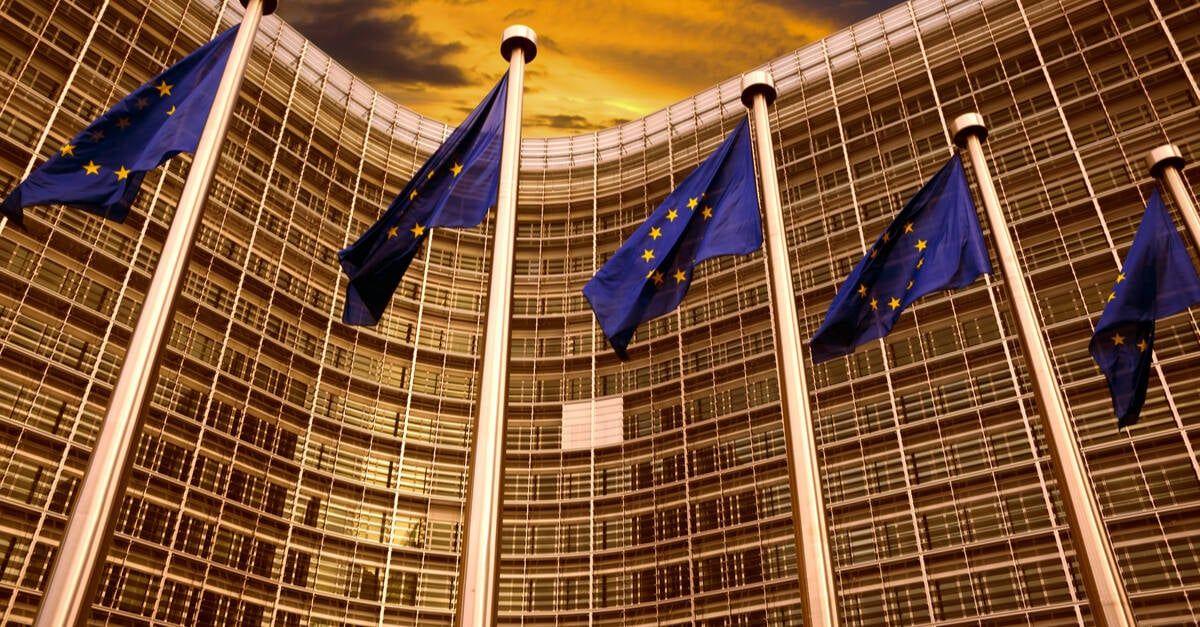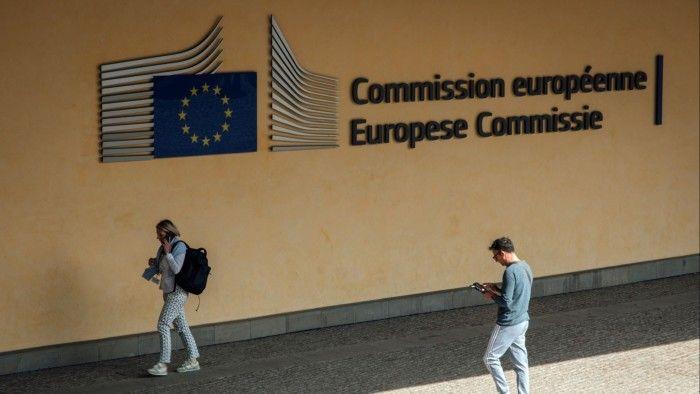EU Scales Back AI Regulations, Denies US Influence in Decision
3 Sources
3 Sources
[1]
Europe dials back AI rules and officials deny U.S. influence in the decision
The European Union has denied that recent reductions in tech regulation, notably the withdrawal of the AI Liability Directive, are a result of pressure from the Trump administration. The AI Liability Directive aimed to facilitate consumer lawsuits for harms caused by AI-enabled products and services. In an interview with the Financial Times, Henna Virkkunen, the EU's digital chief, explained that the decision to scrap the AI liability proposal stemmed from the bloc's goal to enhance competitiveness by reducing bureaucracy and red tape. She stated that the EU seeks to "help and support" companies in applying AI regulations while ensuring that additional reporting obligations are not imposed. U.S. Vice President JD Vance recently urged European legislators at the Paris AI Action Summit to reconsider their approach to technology regulation and to embrace the "AI opportunity." Following his speech, the European Commission published its 2025 work program, which confirmed the withdrawal of the AI liability proposal and outlined plans to promote AI development and adoption in the region. The EU's recent tech policy adjustments aim to spur investments in artificial intelligence without succumbing to external pressures. Virkkunen emphasized that the deregulatory push is driven by the EU's ambition to remain competitive and is not influenced by the United States. She noted the importance of maintaining enforcement of existing online platform rules to ensure a fair competitive environment. The EU's AI Act categorizes AI technologies based on their risk levels, determining that higher-risk categories entail more rigorous reporting requirements. Powerful AI models, like OpenAI's GPT-4 and Google Gemini, will also be subjected to enhanced transparency obligations regarding their training methodologies. Despite criticisms from companies like Google and Meta about the upcoming AI code of practice being unworkable, Virkkunen reaffirmed the EU's commitment to cutting bureaucracy while protecting its values and legal frameworks. She stated, "Our digital world can't be a wild west where there are no rules." The EU continues to assert that it remains one of the largest markets for U.S. tech firms, which have largely complied with its regulatory demands. A day after Vance's speech, the Commission unveiled its 2025 work program, promoting a "bolder, simpler, faster" Union. The document scrapped the AI liability proposal while outlining initiatives to boost regional AI growth and adoption.
[2]
Europe denies dropping AI liability rules under pressure from Trump | TechCrunch
The European Union has denied that recent moves to row back on some planned tech regulation -- principally by ditching the AI Liability Directive, a 2022 draft law which had been aimed at making it easier for consumers to sue over harms caused by AI-enabled products and services -- were made in response to pressure from the Trump administration to deregulate around AI. In an interview with the Financial Times on Friday, Henna Virkkunen, the EU's digital chief, claimed the AI liability proposal was being scrapped because the bloc wanted to focus on boosting competitiveness by cutting bureaucracy and red tape. An upcoming code of practice on AI -- attached to the EU's AI Act -- would also limit reporting requirements to what's included in existing AI rules, she said. On Tuesday, U.S. vice president JD Vance warned European legislators to think again when it comes to technology rule-making -- urging the bloc to join it in leaning into the "AI opportunity," via a speech at the Paris AI Action Summit. The Commission published its 2025 work program the day after Vance's speech -- touting a "bolder, simpler, faster" Union. The document confirmed the demise of the AI liability proposal, while simultaneously setting out plans aimed at stoking regional AI development and adoption.
[3]
EU scales back tech rules to boost AI investment, says digital chief
The EU is cutting back tech regulation to spur investments in artificial intelligence, not because of pressure from US Big Tech companies and the Trump administration, the bloc's digital chief has said. Henna Virkkunen, the European Commission's executive vice-president in charge of digital policy, told the Financial Times the EU wanted to "help and support" companies when applying AI rules, as the bloc sought to boost competitiveness and not miss the boat on this technology. Brussels needed to ensure "that we are not creating more reporting obligations for our companies", she said. US President Donald Trump has threatened to retaliate against the EU for the fines it slapped on US tech companies. His return to the White House has emboldened Silicon Valley executives in their claim that the EU's regulatory grip is hurting their companies. At an AI summit in Paris earlier this week, US vice-president JD Vance lashed out against "onerous international" rules targeting Big Tech. The commission has since announced it was withdrawing a planned AI liability directive as part of a broader push for deregulation. Virkkunen also said that an upcoming code of practice on AI, expected in April, will limit reporting requirements to what is included in the existing AI rules. The EU's recently adopted AI Act classifies the technology into three categories based on the risks they pose to human health and security, for instance if they have any medical application, or if they are being deployed in public transport. The higher the risk category, the bigger the reporting requirements. Powerful AI models, such as OpenAI's GPT-4 and Google Gemini, also face extra obligations, such as having to be more transparent about how models are trained. Google and Meta, the owner of Facebook, have been criticising the code. Meta's top lobbyist Joel Kaplan said in Brussels earlier this month that the code risked imposing "unworkable and technically unfeasible requirements". But Virkkunen insisted the deregulatory push is driven by the EU's own ambition to enhance its competitiveness, and not "dependent on the US". "We are very committed to cut bureaucracy and red tape," she said. Brussels had no plans to weaken enforcement of its rules governing online platforms, which "are working" to ensure a level playing field, she said. So far, Big Tech has been largely complying with EU rules, given that the bloc "is one of the biggest markets" for US companies. "We are open for business, but we also want to make sure that we are protecting our own values and our way of life," Virkkunen said. "Our digital world can't be a wild west where there are no rules."
Share
Share
Copy Link
The European Union has withdrawn its AI Liability Directive and is scaling back tech regulations to boost AI investment and competitiveness, while denying that the decision was influenced by US pressure.

EU Withdraws AI Liability Directive
The European Union has made a significant shift in its approach to artificial intelligence regulation by withdrawing the AI Liability Directive. This proposal, introduced in 2022, aimed to simplify the process for consumers to sue over harms caused by AI-enabled products and services
1
. The decision to scrap the directive comes as part of a broader push to reduce bureaucracy and enhance the EU's competitiveness in the AI sector.Denial of US Influence
EU officials have strongly denied that this regulatory rollback is a result of pressure from the United States or big tech companies. Henna Virkkunen, the EU's digital chief, emphasized that the decision is driven by the bloc's own ambition to boost competitiveness and is not "dependent on the US"
3
. This statement comes in the wake of US Vice President JD Vance's speech at the Paris AI Action Summit, where he urged European legislators to reconsider their approach to technology regulation2
.Focus on Competitiveness and AI Investment
The EU's new strategy aims to create a more favorable environment for AI development and adoption. Virkkunen stated that the bloc wants to "help and support" companies in applying AI regulations while ensuring that additional reporting obligations are not imposed
1
. This approach is part of a broader initiative to promote a "bolder, simpler, faster" Union, as outlined in the Commission's 2025 work program2
.Balancing Regulation and Innovation
Despite the regulatory rollback, the EU maintains its commitment to enforcing existing rules governing online platforms. The AI Act, which categorizes AI technologies based on their risk levels, remains in place. High-risk AI applications and powerful AI models like OpenAI's GPT-4 and Google Gemini will still face enhanced transparency obligations
1
.Related Stories
Industry Reactions and Concerns
The EU's regulatory approach has faced criticism from major tech companies. Google and Meta have expressed concerns about the upcoming AI code of practice, with Meta's top lobbyist Joel Kaplan describing some requirements as "unworkable and technically unfeasible"
3
. However, Virkkunen maintains that the EU remains committed to protecting its values and legal frameworks while fostering innovation.Global Context and Future Implications
This shift in EU policy comes at a time of increasing global competition in AI development. The decision to scale back regulations could have significant implications for the AI industry in Europe and beyond. As Virkkunen stated, "Our digital world can't be a wild west where there are no rules," highlighting the ongoing challenge of balancing innovation with responsible governance in the rapidly evolving field of artificial intelligence
3
.References
Summarized by
Navi
Related Stories
EU Considers Loosening AI and Data Regulations Amid US Competition
10 Apr 2025•Policy and Regulation

EU Considers Major Rollback of GDPR and AI Regulations Amid Competitiveness Concerns
10 Nov 2025•Policy and Regulation

EU Withdraws AI Liability Directive Amid Global Regulatory Debates
14 Feb 2025•Policy and Regulation

Recent Highlights
1
Google Gemini 3.1 Pro doubles reasoning score, beats rivals in key AI benchmarks
Technology

2
Meta strikes up to $100 billion AI chips deal with AMD, could acquire 10% stake in chipmaker
Technology

3
Pentagon threatens Anthropic with supply chain risk label over AI safeguards for military use
Policy and Regulation





